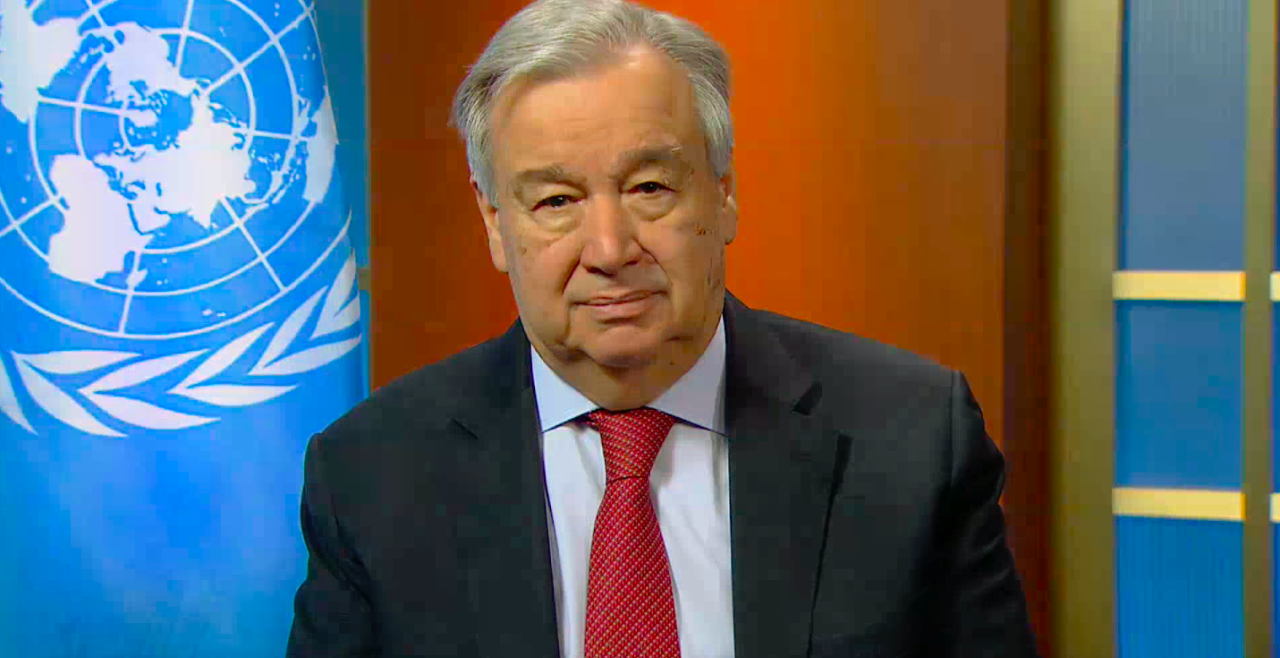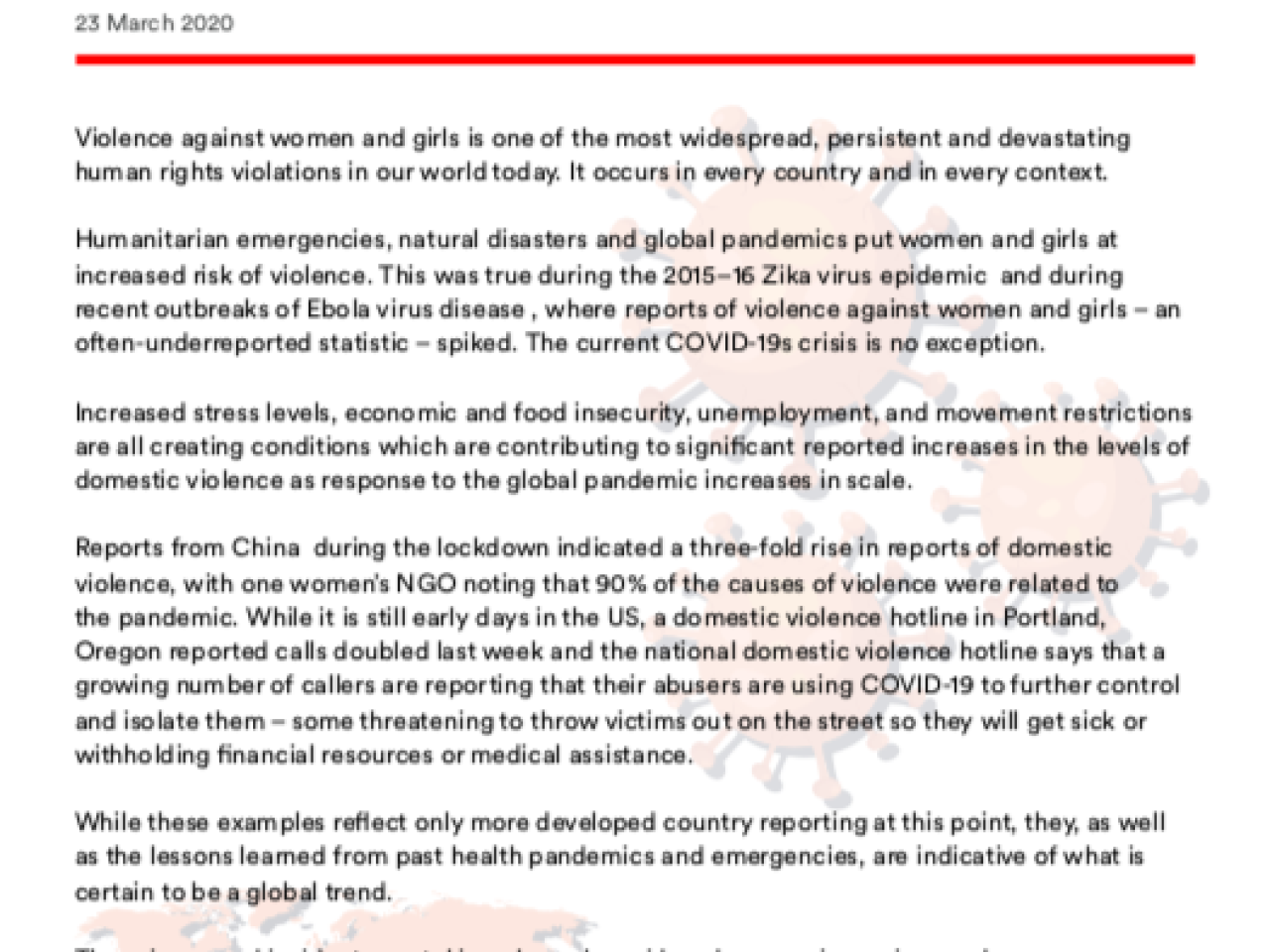UN Secretary-General António Guterres calls for a ‘ceasefire’ in homes as violence against women and girls surges

NEW YORK, USA - Following repeated calls for a global ceasefire in war-torn regions during the COVID-19 crisis, UN Secretary-General António Guterres tonight issued another request. This time, he implored governments to address the “horrifying global surge in domestic violence”.
“For many women and girls, the threat looms largest where they should be safest: in their own homes,” said Mr Guterres. “And so I make a new appeal today for peace at home — and in homes — around the world.”
Global reports of violence against women and girls – an often-underreported statistic – have spiked significantly in response to the COVID-19 crisis as increased stress levels, economic and food insecurity, and unemployment are further exacerbated by lockdowns and movement restrictions.
“We know lockdowns and quarantines are essential to suppressing COVID-19,” said Mr. Guterres. “But they can trap women with abusive partners.”
Reports from China during the lockdown indicated a three-fold rise in reports of domestic violence, with one women’s NGO noting that 90 per cent of the causes of violence were related to the pandemic. The U.S. national domestic violence hotline says that a growing number of callers are reporting that their abusers are using COVID-19 to further control and isolate them, including threatening to kick them out of the home and withholding financial resources or medical assistance. In South Africa, police confirmed that they received more than 87,000 domestic violence complaints in only the first seven days of the lockdown.
These increased incidents are taking place alongside a decrease in services. Health services for survivors are limited as overwhelmed healthcare systems shift resources to treat COVID-19 patients. Movement restrictions disrupt the ability of civil society organizations to support survivors and provide critical, lifesaving care. Shelters are being repurposed as health centres or their staff are unable to continue working after being deemed ‘non-essential’. Survivors are unable to access justice or legal protections as state institutions such as courts scale down operations.
The UN Secretary-General has urged all governments to make the prevention of violence against women a key part of their national response plans for COVID-19. This includes investing in online services and civil society organizations, ensuring judicial systems continue to prosecute abusers and declaring shelters essential services.
In line with World Health Organization and United Nations guidelines to prevent the spread of COVID-19, Spotlight Initiative and its partners are delivering a gender-responsive effort to stem the spread of the virus, while working to eliminate all forms of violence against women and girls.
Country teams are working to initiate business continuity and contingency plans; minimize programme implementation delays; and to maintain the health and wellbeing of the staff, partners and counterparts in affected countries.
National and civil society partners are identifying, mapping and mitigating COVID-19 risks, and reallocating assets and resources to continue critical service delivery. They’re scaling up activities related to gender-based violence prevention and services, such as hotlines, government subsidies, radio, television, social media and virtual chat programmes; and ensuring that current services such as shelters and one-stop centres do not increase the risk of COVID-19 transmission. Spotlight Initiative hopes to support these efforts by allowing funds to be reallocated for core support.
The Initiative will continue working to ensure that the UN Secretary-General’s calls for an inclusive, gender-sensitive response to the COVID-19 pandemic are heeded, and that the rights of at-risk women and girls are protected.
“Together, we can and must prevent violence everywhere, from war zones to people’s homes, as we work to beat COVID-19,” said Mr. Guterres.

